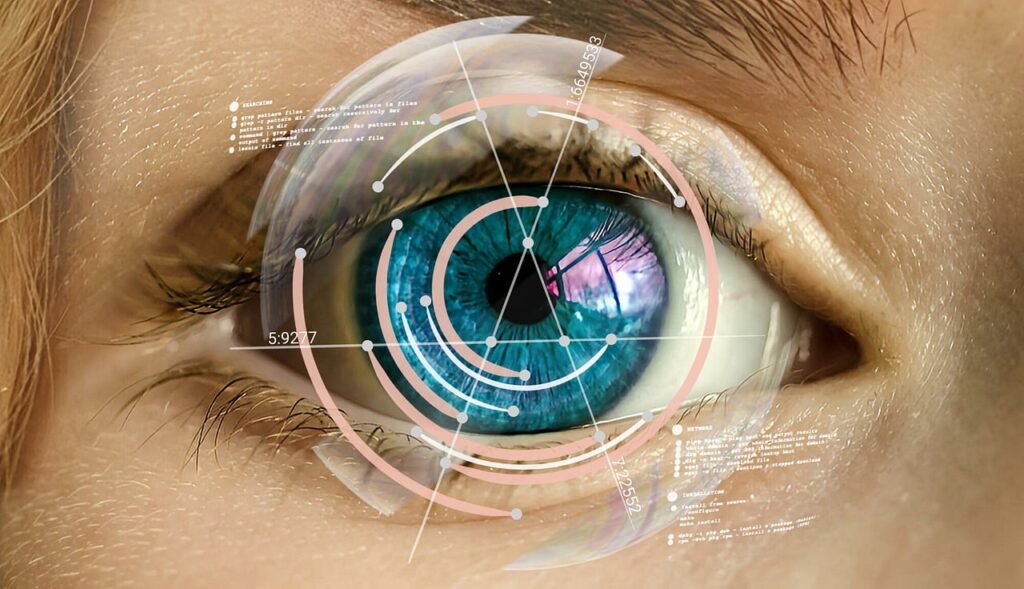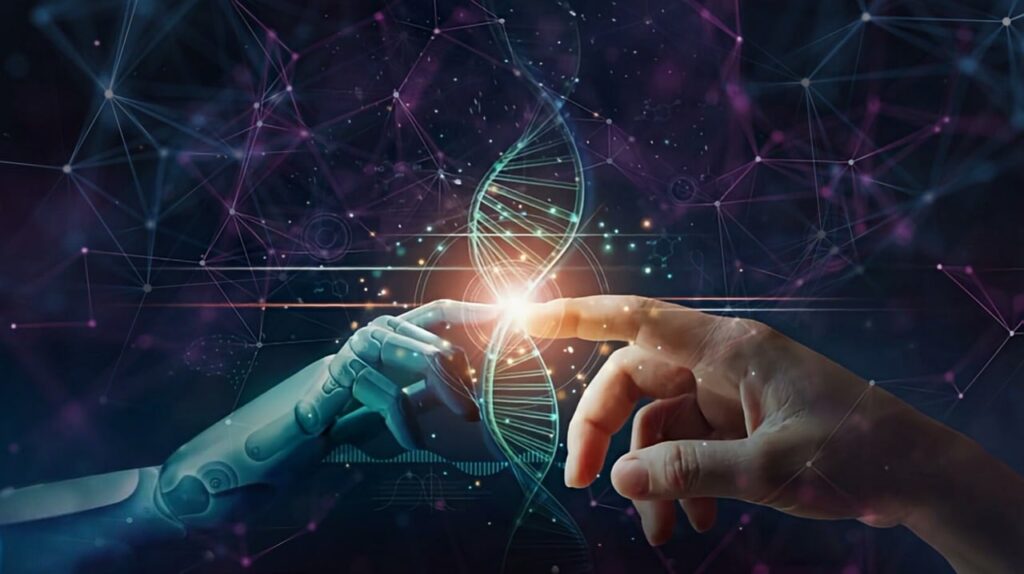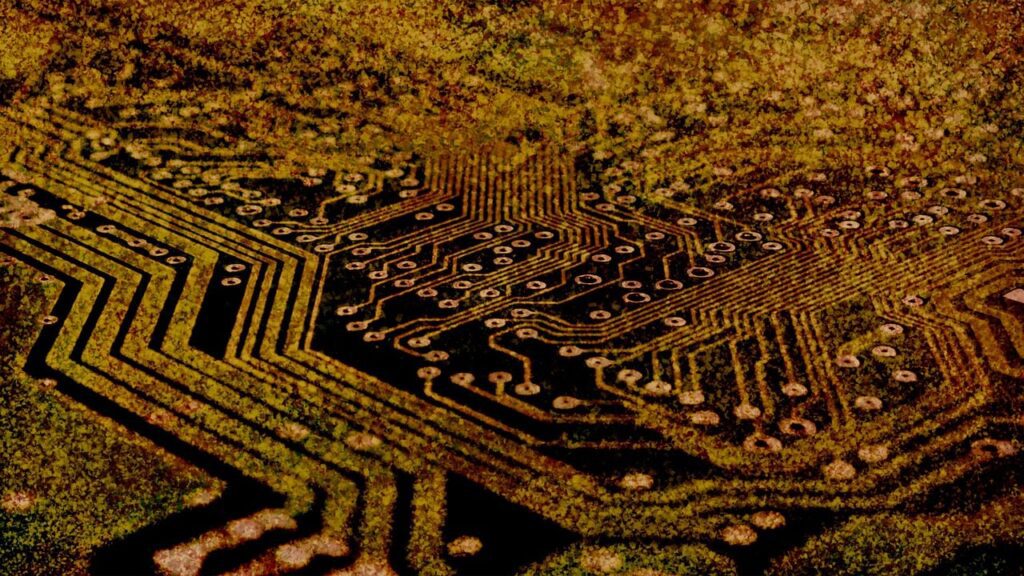Physical Address
304 North Cardinal St.
Dorchester Center, MA 02124
Physical Address
304 North Cardinal St.
Dorchester Center, MA 02124


In recent years, the term “Artificial Intelligence” has become ubiquitous, transforming the way we live and work. This article delves into the intricate world of AI software, exploring its evolution, types, applications, benefits, challenges, and future trends.
It has become an integral part of our everyday lives, reshaping industries and redefining the way we interact with technology. The magic behind these technological advancements lies in the heart of AI software, which has transformed everything from healthcare diagnostics to personalized online shopping experiences.
AI software, the digital brain behind intelligent machines, is designed to simulate human intelligence processes, learn from experiences, and adapt to new inputs. It is the key that unlocks a myriad of possibilities, driving innovation and creating solutions that seemed impossible a few decades ago.
Artificial Intelligence (AI) has long been a subject of both fascination and intrigue, often seen as a futuristic concept that belongs more in the realm of science fiction than in our everyday lives. However, the reality is that AI is no longer a distant idea, but a present-day marvel rapidly transforming the world around us. The heart of these technological advancements lies in AI software, which is revolutionising industries, driving innovation, and reshaping the way we interact with technology.
AI software, often described as the digital brain behind intelligent machines, is designed to simulate and emulate human intelligence processes. It learns from its experiences and adapts to new inputs, much like a human mind. It’s this uncanny ability to learn and adapt that makes AI software so powerful and versatile. Whether it’s recommending a movie based on your viewing history or predicting traffic patterns on your daily commute, AI software is the key that unlocks a myriad of possibilities.


AI software is a collection of algorithms and data structures that create an artificial version of human-like intelligence. It uses machine learning and deep learning techniques to analyze, understand, and learn from vast amounts of data.
Machine learning, a subset of AI, is the science of designing computer algorithms that improve automatically through experience. It uses statistical methods to enable machines to learn from data without being explicitly programmed.
Deep learning, a further subset of machine learning, uses neural networks with many layers (hence the ‘deep’ in deep learning) to analyze various factors with a structure similar to the human brain. The more data the software consumes, the better it becomes at recognizing patterns and making accurate predictions.
To truly understand AI software, one must first understand what AI is. At its core, AI is a multidisciplinary field that combines concepts from computer science, data science, mathematics, psychology, and even philosophy, to create machines that can perform tasks that would normally require human intelligence.
AI software is essentially a set of instructions that tells an AI what to do and how to do it. It is a collection of complex algorithms and data structures that create an artificial version of human-like intelligence. These algorithms and data structures are designed to analyze, understand, learn from, and make decisions based on vast amounts of data.
Deep learning, on the other hand, is a further subset of machine learning that uses neural networks with many layers (hence the ‘deep’ in deep learning). These neural networks are designed to analyze various factors with a structure similar to the human brain. The more data the software consumes, the better it gets at recognizing patterns, making accurate predictions, and making decisions.
AI software is constantly learning and improving. It uses advanced algorithms and computational power to process and analyze data, identify patterns, and make predictions. The more data it’s exposed to, the more it learns, and the better it gets at performing its tasks. This ability to learn from experience and improve over time is what sets AI software apart from traditional software.


AI software has permeated almost every industry, creating a paradigm shift in how businesses operate and how services are delivered.
In the healthcare industry, for instance, AI software is being used to develop more accurate and personalized treatment plans. It’s being used to analyze medical images, identify patterns in patient data, and even predict the likelihood of disease. AI software is also playing a pivotal role in drug discovery, where it can analyze vast databases of existing medicines and predict their potential uses for other diseases.
AI is used for diagnosing diseases, predicting patient outcomes, and personalizing patient treatment plans. It’s also used in drug discovery, where AI can analyze vast databases of existing medicines and predict their potential uses for other diseases.
In the automotive industry, AI software is the driving force behind self-driving cars. It’s used to process vast amounts of data from various sensors in real time, making decisions from recognizing traffic signs to avoiding pedestrians.
In e-commerce, AI algorithms personalize the shopping experience by analyzing customer behaviour and trends to recommend products. AI chatbots, powered by natural language processing, provide real-time assistance to customers, enhancing customer service.
AI software has been making waves in almost every industry, driving a paradigm shift in how businesses operate and how services are delivered. From healthcare and finance to transportation and entertainment, AI software is transforming the way we live and work.
In the world of finance, AI software is being used to detect fraudulent transactions, make investment decisions, and provide personalized financial advice. It’s also being used to automate mundane and repetitive tasks, freeing up humans to focus on more complex and strategic tasks.
In transportation, AI software is the driving force behind self-driving cars. It’s used to process vast amounts of data from various sensors in real time, making split-second decisions that are critical for the safety and efficiency of the vehicle. From recognizing traffic signs and signals to predicting the behaviour of other road users, AI software is making autonomous vehicles a reality.
The e-commerce industry is another area where AI software is making a significant impact. AI algorithms are being used to personalize the shopping experience, analyzing customer behaviour and trends to recommend products that the customer is likely to be interested in. AI chatbots, powered by natural language processing, are providing real-time assistance to customers, enhancing customer service and driving customer satisfaction.
These are just a few examples of how AI software is being applied across different industries. The potential applications of AI software are virtually limitless, with new and innovative uses being discovered every day.


The future of AI software is boundless and full of potential. As technology evolves, AI software is expected to become more advanced and integrated into our daily lives.
In the future, we expect AI to play a significant role in solving complex societal problems, from climate change to global health crises. With its ability to analyze vast amounts of data and make predictions, AI could provide insights and solutions that are beyond human capabilities.
AI is also expected to revolutionize education. AI-powered adaptive learning systems could provide personalized learning experiences, adapting to each student’s strengths and weaknesses.
Furthermore, as AI technology matures, ethical considerations will become increasingly important. Policies and regulations will need to evolve to ensure that AI is used responsibly and that its benefits are distributed equitably.


While AI software offers a myriad of benefits, it also poses significant challenges. One of the key issues is the black box problem, a lack of transparency in AI decision-making processes.
Another challenge is the potential job displacement due to automation. As AI becomes more sophisticated, it could potentially replace human jobs, leading to significant social and economic impacts.
Ethical considerations are also paramount. As AI systems become more integrated into our lives, issues of privacy, security, and consent become increasingly important. We must develop ethical guidelines and regulations to ensure that AI is developed and used responsibly.


In conclusion, the journey of artificial intelligence software is dynamic and promising. From its humble beginnings to shaping our daily lives, AI is a force to be reckoned with. As we navigate its future, responsible development and ethical considerations will be key to maximizing its potential.
Artificial intelligence software is transforming our world, driving innovation, and reshaping industries. The power of AI lies in its ability to learn, adapt, and make decisions, offering a myriad of applications from healthcare to education.
However, as we continue to embrace AI, it’s crucial that we also consider the ethical implications and challenges it presents. The future of AI is not just about technological advancements, but also about ensuring that these advancements are used responsibly and benefit everyone.
As we stand on the brink of the AI revolution, it’s clear that AI software is not just a tool, but a partner that will play an integral role in shaping our future. The magic of AI software lies in its potential to transform not only technology but our entire world.
Is AI software only for large corporations?
No, AI software has applications across businesses of all sizes, offering solutions tailored to specific needs.
How does AI impact job security?
While automation may change certain job landscapes, it also creates opportunities in new and evolving AI-related fields.
Are there regulations for AI software development?
Yes, various regulations and guidelines govern the ethical development and use of AI software.
Can AI software be creative?
Yes, AI is increasingly being utilized in creative fields, contributing unique perspectives and innovations.
To know our most recent article on the best AI tools read our list of AI tools to boost productivity and accuracy
————————————————————————————————————-